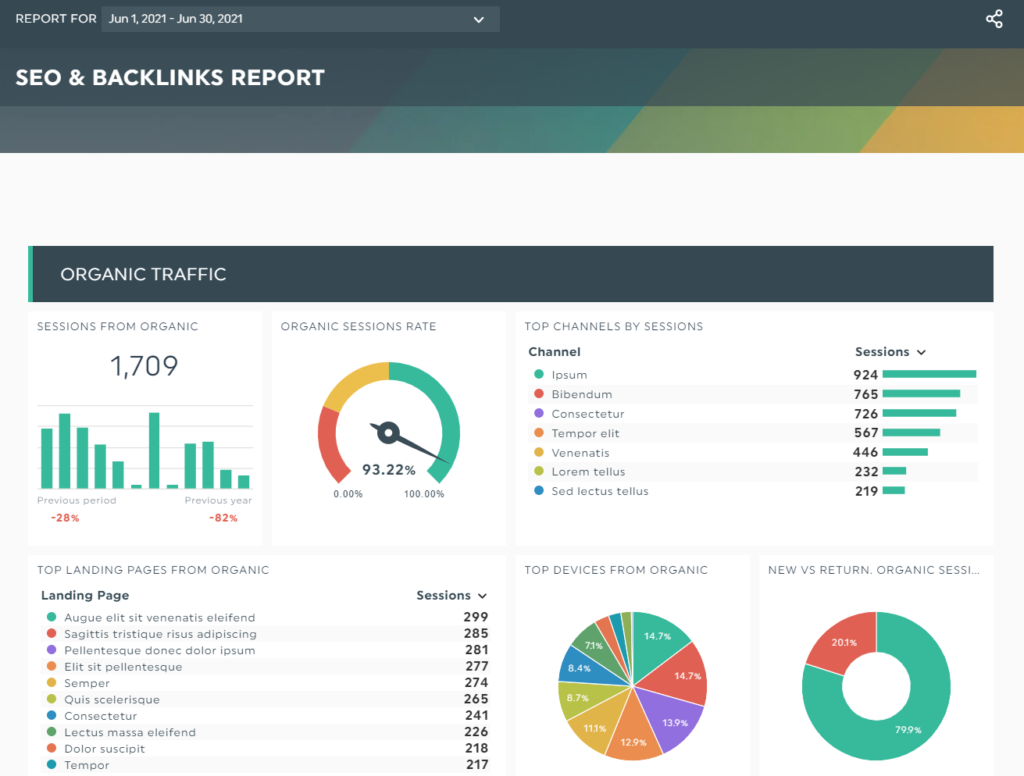In the dynamic landscape of search engine optimization (SEO), one factor that often gets overlooked is the significance of historical data. Google’s algorithms are complex, and they utilize a variety of factors to determine the ranking of web pages. Among these factors, historical performance data plays a crucial role in how Google evaluates and ranks websites. Understanding this can give you an edge in optimizing your site for better visibility and traffic.
The Role of Historical Data in Google’s Ranking Algorithms
- Long-Term Performance Metrics: Google considers a website’s long-term performance metrics, such as page load speed, bounce rate, and click-through rate (CTR). These factors can indicate the quality of the user experience over time. If a site consistently performs well, it’s more likely to be favored in search rankings. For instance, pages that load quickly and retain visitors tend to rank higher. To improve your site’s performance, consider utilizing SEO services that focus on optimizing these metrics.
- Backlink Profile: The history of a website’s backlink profile is another important factor. Websites that have consistently gained high-quality backlinks over time tend to have more authority in Google’s eyes. Conversely, sites with a sudden spike in backlinks might be viewed with suspicion. Maintaining a steady and organic growth in backlinks is vital for long-term SEO success. Our Content Writing Services can help you create high-quality content that naturally attracts backlinks.
- Content Updates and Relevance: Google favors websites that regularly update their content. If a page has a history of being updated with relevant information, it is likely to rank higher than static pages. This is particularly important for topics that evolve over time, such as technology or digital marketing trends. Keeping your content fresh and relevant can be achieved through regular updates and optimizing for trending keywords. For guidance on optimizing your content, explore our Pay-Per-Click services that focus on keyword strategies.
- User Engagement Metrics: Historical user engagement metrics, such as time on page and interaction rates, influence how Google ranks pages. If users consistently find a page valuable, leading to longer session times and lower bounce rates, Google interprets this as a sign of quality content. Monitoring these metrics through tools like Google Analytics can help you understand how users interact with your content over time.

The Importance of Historical Data for SEO Strategies
Understanding how Google uses historical data can help shape your SEO strategies effectively:
- Content Audits: Regularly auditing your content allows you to identify pages that may need updates or revisions. By analyzing historical performance data, you can determine which pages have consistently underperformed and require optimization.
- Long-Term SEO Investments: SEO is a long-term investment. Knowing that historical data plays a significant role in rankings can help you prioritize sustainable strategies over quick wins. Building a solid foundation through quality content, user engagement, and consistent updates is crucial.
- Competitor Analysis: Analyze your competitors’ historical performance data to uncover strategies that work for them. If certain pages of theirs have gained traction over time, consider similar topics or approaches to improve your own content.
Leveraging Historical Data for Future Success
As you work to improve your website’s SEO, leveraging historical data can provide valuable insights. Here are a few tips:
- Regularly Update Your Content: Aim to refresh your content based on historical data trends. If a blog post has been consistently attracting traffic, it may be worthwhile to update it with new information or insights to keep it relevant.
- Monitor Key Metrics: Use Google Analytics and Search Console to track historical performance metrics. Look for patterns that can inform your content strategy, such as seasonal trends or shifts in user interests.
- Create Evergreen Content: Invest time in creating evergreen content that provides long-lasting value. Such content not only benefits from historical performance but also continues to attract organic traffic over time. Topics related to Google My Business or foundational SEO principles can serve as great evergreen content.

Conclusion: Historical Data Matters
In conclusion, understanding and utilizing historical performance data is essential for any successful SEO strategy. By paying attention to metrics like engagement rates, backlink profiles, and content updates, you can make informed decisions that will enhance your website’s visibility in search results.
If you want to optimize your website’s historical performance data and improve your SEO strategy, contact us today! The expert team at Social Media Max is ready to assist you in crafting a tailored approach to boost your online presence. Call us at 0161 399 3517 or email Syed_66@hotmail.com to get started on your journey to SEO success!

